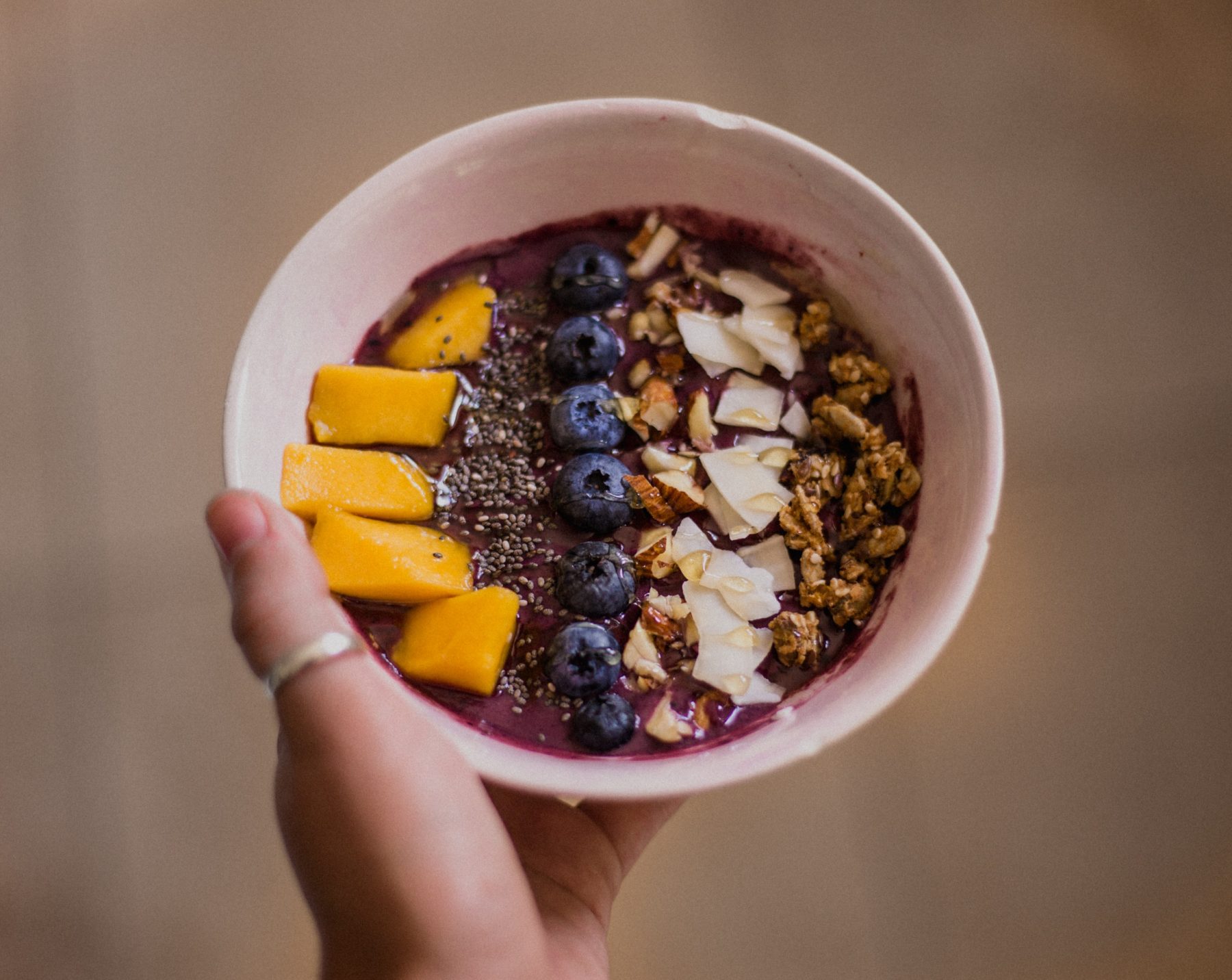The Mechanics of Digestion: How Does Your Body Handle Carbohydrates After You Eat?6 min read

Aesthetica Editorial Team

We’ve all heard the arguments: Carbs are bad, cutting down on carbs will help you lose weight, avoiding carbs is the healthiest option. Because of this, many people have said “Au revoir!” to spaghetti, bread, donuts, bagels, and anything high in carbs. But are all the myths true, or have fact and fiction gotten mixed up?
Before embarking on the low-carb diet or altering the carbs in your meals, it’s important to take a step back and start at the beginning. Keeping true to most things in life, understanding carbohydrates is more complicated than just labeling “bad” or “good.” Read below to learn the truth about carbohydrates and how to best regulate them in your daily life!
What Are Carbohydrates?
To put it simply, carbohydrates provide the fuel your body needs to keep moving. When carbs are digested/metabolized, they provide energy. This occurs when the carb-filled foods are broken down into sugars (saccharides). These sugars are vital to healthy living since they’re used to maintain necessary cell functions, growth, and needed repairs.
Not only are carbs an energy source for your body – they’re your body’s MAIN source of energy. This means that in order for you to feel as healthy, active, and energized as possible it’s very important to know how to regulate the carbs we eat!
Carbohydrates are needed to keep your body healthy. However, not all carbs are created equal. Some carbs are naturally occurring, like in fruits, vegetables, and even dairy. Other carb types are refined and altered, changing their nutrient make-up and health benefits.
To put it briefly, there are three types of carbohydrates:
- Starches (complex carbs)
- Sugars (simple carbs)
- Fibers
When digested, starches and sugars become glucose (blood sugar). This is generally the kind of carbs that people who diet tend to avoid. Fiber, however, isn’t digested nor broken down. Unlike starches and sugars, fiber’s sugars are absorbed more slowly. This means that blood sugar doesn’t rise too quickly. This type of carb is encouraged for benefiting heart health and weight.

The Ingestion, Digestion, & Excretion Journey
As stated before, starches and sugars are the two types of carbs that are digestible, while fiber is an absorber. This means that when you eat starchy and sugary foods, they’re broken down in the gastrointestinal tract (basically the digestive system). In the mouth, the enzyme amylase breaks down the starches. For sugars, enzymes sucrase, maltase, and lactase break it down. Once it travels to the stomach, the mushy food (now called chyme) is further digested by the stomach acids which kills bacteria.
When the chyme reaches the first part of the small intestine (duodenum), the pancreas releases amylase where carbs are broken down further into dextrin and maltose. All around the upper and lower parts of the small intestine are small, almost hair-like projections (villi) that absorb the carbs and secrete enzymes lactase, sucrase, and maltase. From there, everything absorbed either goes to the blood stream as glucose where it’s distributed to the muscles, or it’s stored in the liver as glycogen.
The carbs that aren’t fully digested are eliminated by – well, you know. Since fiber isn’t digested, it’s the main carb that is eliminated. Unlike the other carbs, whose journey ends at the small intestine, the undigested carbs go through the large intestine and colon.
Insulin & Carbs - A Vital Combination

Carbohydrates + You
Carbohydrates are found all over, so it’s both impossible and unhealthy to avoid all of them. However, you can regulate your carb intake by being smart about which carbs should be eaten when, and how many carbs should be eaten. Here are some examples of healthier carb options.
Complex Carbs:
- Beans / Legumes
- Lentils
- Potatoes
- Whole grains
Fiber-Filled Carbs:
- Fruits
- Vegetables
- Beans / legumes
- Whole grains
Generally, eating carbohydrates from natural sources is the best option. These kinds of carbs can boost your immunity, help maintain weight, and improve overall health. Processed and refined carbs should be consumed in moderation. Desserts, sodas, and sweets may contain carbs, but not the healthiest ones. These are the kinds of carbs that are easily stored as fat, causing weight gain. Eating too many of these carbs without a proper balance of healthy foods and exercise can contribute to other health issues like heart disease and type 2 diabetes.
The Bottom Line
So, what does this all mean? To put it simply, everyone needs a healthy intake of carbohydrates, since carbohydrates provide energy. Depending on personal health, lifestyle, and activity, some people may need to eat more carbs and others may need to eat less. Not all carbs are bad, and not all carbs are good.
A good rule of thumb is simple: Everything in moderation. You may not have to eliminate all sugary or starchy carbs from your diet lest you become lethargic, but then again you may not want to eat 3 donuts in one sitting lest all the unused energy becomes fat. If you’re trying to lose weight, cutting down on the amount of sugary or starchy carbs may be a good idea. Of course, it’s always recommended that you do research and talk to a nutritionist or doctor before changing your diet.
Ready to take control of your weight?
The Mediweightloss program is helping individuals take control of their weight one lifestyle change at a time. Are you ready to learn more about weightloss, carbs, and digestion? Come talk to us! Dr. Chang or one of the cosmetic laser and injection nurses want to help you explore whether you would make a good candidate. To find out more whether Aesthetica can help you, contact us online or at 703-729-5553 to arrange an appointment. Dr. Phillip Chang is a board-certified plastic surgeon in Northern Virginia near Leesburg, Virginia and an expert in a wide variety of cosmetic treatments.
Let Us Help You!
Our office can provide you will helpful information, schedule a free consultation, and explain the many services and procedures Aesthetica offers.
Contact Dr. Chang's Office:
More Articles For You

DAXXIFY: The Before and After
Embarking on a cosmetic treatment journey with DAXXIFY holds anticipation, and questions but most importantly

Xeomin vs. BOTOX: How to Pick the Right One for You
The choice between Xeomin and BOTOX can be as perplexing as choosing the perfect outfit

What Are the Prices of Breast Implants in Leesburg, VA?
When considering breast augmentation, one of the crucial aspects patients often inquire about is the

Where to Find the Best Plastic Surgeon in Leesburg, VA!
Embarking on the journey to enhance your appearance and boost your confidence through plastic surgery
